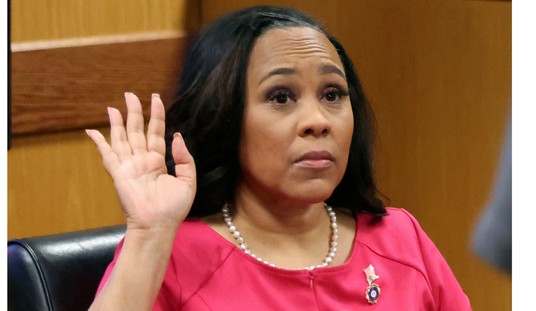Whether it’s the terrible prospect of the island of Guam tipping over or just an especially nightmarish election cycle for his party, trust Hank Johnson to give it to you straight. Don’t laugh too hard, though: The House did indeed pass the DISCLOSE Act this afternoon, 219-206, with 36 Democrats joining the GOP in voting no. (Two Republicans, Joe Cao and Mike Castle, voted yes.) Unfamiliar with the DISCLOSE Act? It’s the Democrats’ attempt to combat the Supreme Court’s First Amendment decision in Citizens United that loosened the cap on corporate campaign advertising. The Act would require officials from certain special-interest groups advertising on behalf of candidates “to physically appear at the end of campaign ads they sponsor, acknowledging their campaign contributions, and to disclose their campaign related expenditures on their websites.” In other words, as the Democratic leadership warned its caucus before the vote, it’s a way to make sure voters know if and when Karl Rove’s Satanic fingerprints are on some otherwise mysterious ad. Should be no problem there, though, since the rules will also apply to Democratic special interests too, right? Right?
Corporations, unions, non-profits and 527 groups will, for the first time, be required to report donors who give more than $600 if they engage in “express” advocacy — urging voters to support one candidate or another by name.
Conveniently, as Republican staff on the House Administration Committee point out, average union dues in 2004 were $377 – below the $600 threshold. Since unions get the vast majority of their funds from member dues, “the new threshold for reporting is likely to have little effect on unions … but a huge effect on associations and advocacy groups,” a GOP summary of the bill says.
Government contractors with contracts of more than $7 million are not permitted to engage in express advocacy. Unions that receive their dues from the taxpayer-funded salaries of public sector employees face no such restriction. Neither do recipients of grants.
There’s more at the link, including the fact that this paean to transparency was written in secrecy. (The House Rules Committee’s debate on the bill was, natch, also closed to the public.) And guess what? The disclosure requirements aren’t even the worst part of the bill.
Here’s Johnson. Oh, about his claim that BP and Goldman Sachs will no longer be free to prop up Republicans: Is he sure he’s got the right party?








Join the conversation as a VIP Member